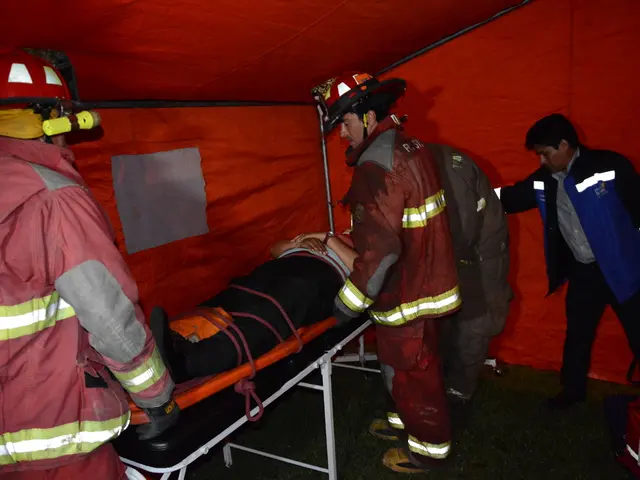Increased Incidence of Poisoning Cases Reported in Pennsylvania and New Jersey, Linked to Popular Weight-Loss Medications
Local poison control centers across Philadelphia, New Jersey, South Jersey, and Delaware are grappling with a surge in calls related to side effects, incorrect dosing, and other exposure incidents concerning glucagon-like peptide-1 (GLP-1) agonist drugs. This trend, experts warn, is particularly alarming given the growing concern over counterfeit products.
The renowned weight-loss drugs Wegovy and Zepbound, among others, have experienced a significant upsurge in popularity, leading to an increased demand for GLP-1 agonists. As a result, calls to poison control centers related to GLP-1 exposure have risen substantially.
Bruce Ruck, managing director of the New Jersey Poison Control Center at Rutgers New Jersey Medical School, emphasizes the importance of monitoring these drugs to ensure their long-term benefits remain intact and no unforeseen consequences emerge in the future.
Anthony Jaworski, clinical program manager of the Poison Control Center at Children's Hospital of Philadelphia, explains that the increase in calls corresponds with the increased usage of these medications, leading to accidents or overdoses.
In 2021, the New Jersey Poison Control Center recorded 29 GLP-1 exposure cases, which skyrocketed to 189 by 2024. The Poison Control Center at CHOP saw 95 related cases in 2023, nearly doubling to 192 the following year. As of this month, there have already been 126 exposures so far this year.
This local surge mirrors the national trend, with GLP-1 exposure cases jumping from 1,090 in 2020 to 8,501 in 2024, according to figures from the National Poison Data System at America's Poison Centers.
Exposure cases encompass calls made by individuals with suspected poisoning or those experiencing any side effect or symptom after taking an incorrect dosage or even using the medication as prescribed.
Although experts note a sharp increase in exposures, the severity of cases and poisonings has remained stable over time. Most individuals are able to avoid an emergency room visit and instead monitor their symptoms at home. However, healthcare officials have raised concerns about counterfeit GLP-1 drugs being sold through online marketplaces and social media, potentially containing unknown substances that could cause serious harm.
Additionally, there have been reports of people taking medication that was originally prescribed to a family member or friend, putting them at risk for unexpected side effects and health complications. In some cases, compounded GLP-1 drugs prescribed during previous shortages continue to pose issues due to their lack of FDA approval for safety and effectiveness.
To ensure your safety, experts recommend careful adherence to medication dosages as prescribed, proper education on dosing methods, and avoiding the purchase or use of GLP-1 drugs from unregulated, online sources. If you suspect a poisoning, call the national poison control helpline at 1-800-222-1222 to be connected with experts at the nearest regional center.
The growing concern over counterfeit GLP-1 drugs, sold through online marketplaces and social media, adds another layer of worry to the surge in GLP-1 agonist drug usage for health-and-wellness purposes, such as weight-management and nutrition. The misuse of these medications, whether from taking someone else's prescription or purchasing them from unregulated sources, can lead to unexpected side effects and potential health risks.








